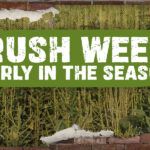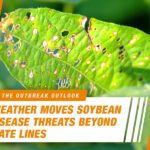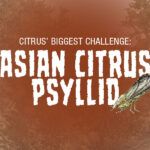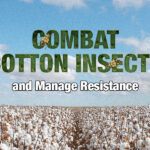Timely Sprays Take Down Lessers and Loopers in Peanuts
Protect peanuts from persistent lepidopteran pests with multiple modes of action.

There is one constant when it comes to growing peanuts: steady pressure from the usual yield-robbing lepidopteran pests, including lesser cornstalk borer (LCB) and soybean looper.
Start the stopwatch after peanuts are planted and determine the best treatment windows for both pests. For LCB, that is 50-75 days after planting when the stand is established. Soybean looper pressure likely will be highest 75-120 days after planting. Close scouting will refine the need and best timing for treatment.

LCB population outbreaks typically occur during hot, dry weather, especially in peanuts growing on sandy soils. If the weather is hot and wet instead, anticipate soybean looper worm flights will begin to pick up and head for your peanut fields.
Fortunately, peanut growers can control the two pests with one product: Besiege® insecticide.
For LCB, the ability to “wash in” an application with irrigation or timely rainfall optimizes control by improving coverage deep in the canopy. Because Besiege insecticide has good residual, a treatment for LCB control is often still available to help manage soybean loopers. As a bonus, the residual offers some control of leaf and alfalfa hoppers that kill leaves and stems.
Besiege insecticide offers broad spectrum knock down and residual activity, but also for its dual modes of action. Besiege insecticide controls lepidopteran, sucking and chewing insects by contact, ingestion and ovicidal action.
To help protect your peanut yields, watch the calendar for Besiege application timing and watch the weather for signs of potential pest problems.
2 Min Read
- Peanut lepidopteran pests include lesser cornstalk borer and soybean looper.
- Timely insecticide applications deliver better control of challenging pests.
- Insecticides with multiple modes of action like Besiege® are a cost-effective management tool.























